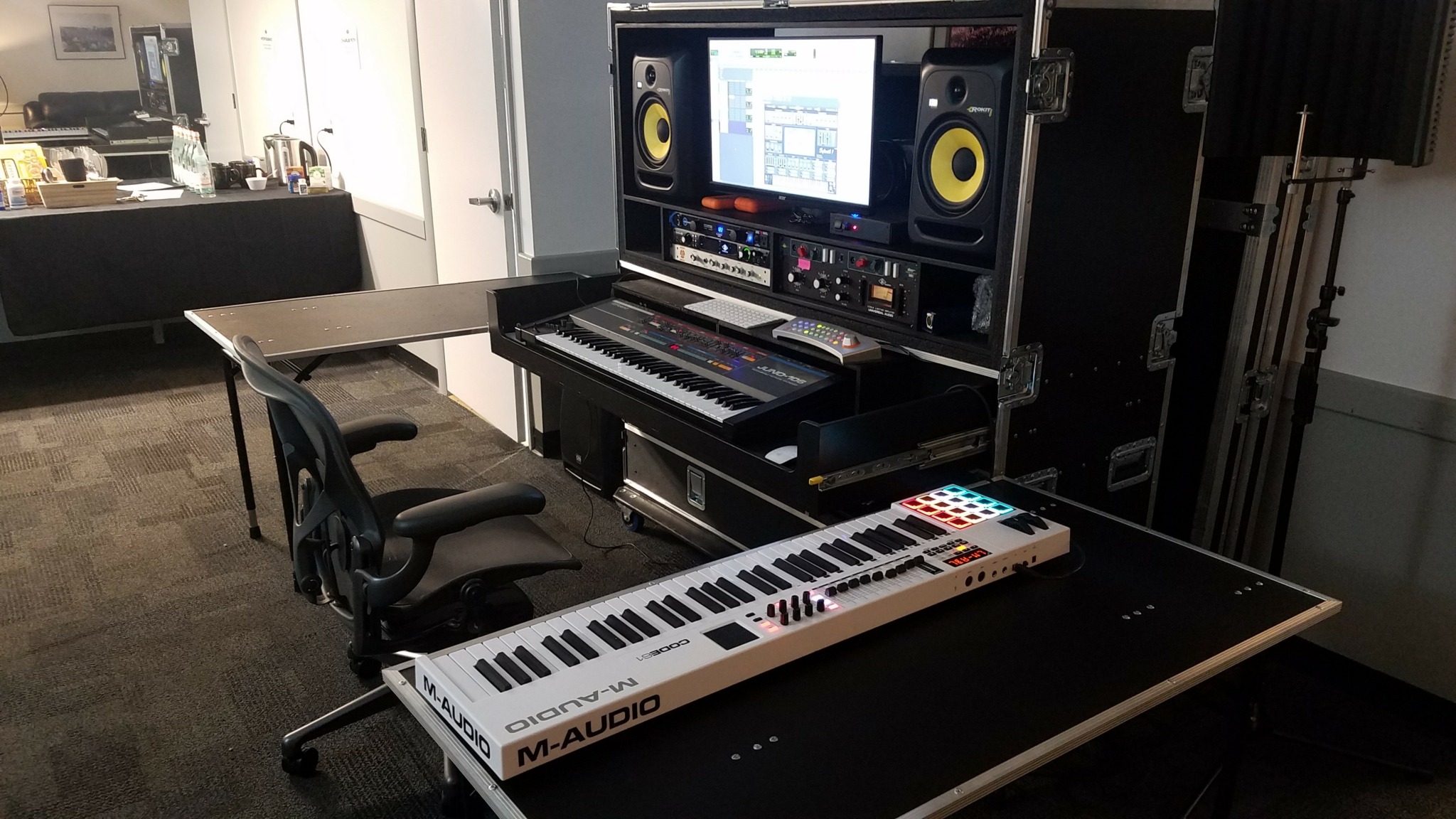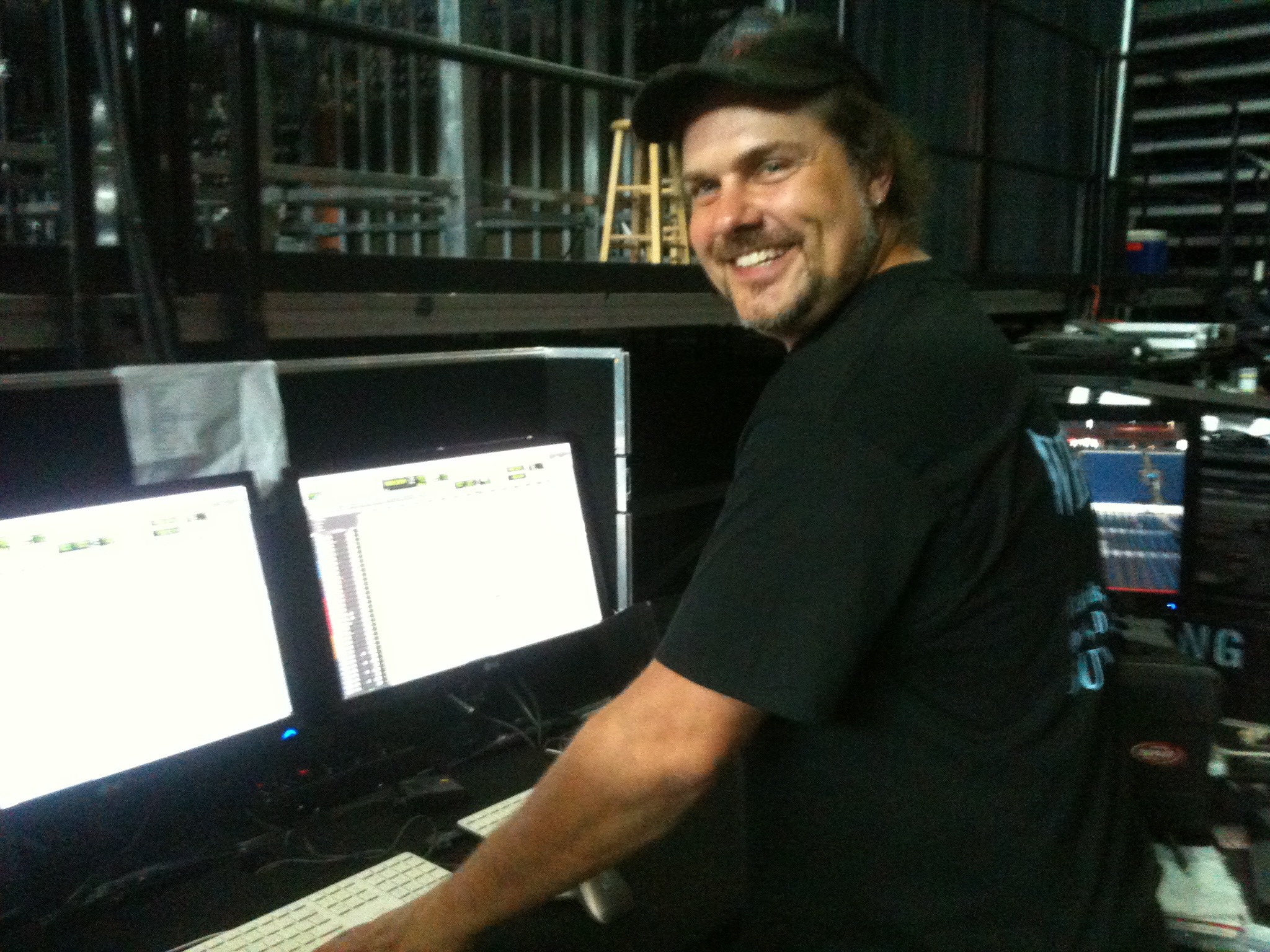We’re excited to introduce you to the always interesting and insightful Eric Morris. We hope you’ll enjoy our conversation with Eric below.
Eric, thanks for taking the time to share your stories with us today Can you talk to us about how you learned to do what you do?
For the most part, I was self taught, it wasnt until I was in my early/mid 20’s where I found a mentor that taught me how to tie all my bits of knowledge together.
Im not sure there was anything to do to speed up my learning process, as I was far ahead of the curve when the practice hit mainstream music, I could have been more social, Im sure that could have helped ;)
The skills that I found that were most essential included not being afraid to crack open manuals for answers. “RTFM” is a term that I live by!
The biggest obstacles for me were usually finances, The gear is expensive, living in Los Angeles was expensive, and I had to spend a lot of my time working crummy jobs that paid very little to be able to get to a spot where I could start using my knowledge and equipment for monetary gain.


Eric, before we move on to more of these sorts of questions, can you take some time to bring our readers up to speed on you and what you do?
I started playing music at the age of 4, when I got my first guitar for Christmas. I was fortunate to go to a private school where I learned how to read music the same time I learned how to read books.
When I was 9, I bought my first computer with my paper route money. It wasnt long before I taught myself how to program it to play music, so I had something to play along with. Computer programming was very basic back then, and as a math/science geek kid I really didnt have too many issues reading some basic programming books to get the computer to function in the way that I wanted it to.
Years later, I sold my computers to finance my move to Los Angeles, where I attended Musician’s Institute, in 1993. In 1995, the .com boom happened and I questioned my decision to sell my computers. But about that same time, ProTools started showing up in the studios and 2 worlds that were the farthest apart all of a sudden collided and I found myself in a very unique position as most folks in the industry never had any computer experience at that time. Today you darn near have to be an IT professional to get most of the gear to work! Upon graduating Musician’s Institute, I was hired to work on staff there. I literally built the first midi lab the school had. Each station had a Pentium windows computer, Cubase, and a Yamaha SY99 keyboard. The first year, that room, for the most part, was empty most of the time as midi sequencing and computers were pretty new. It didnt take long though, and all of a sudden that room was packed at all times.
As mentioned, I, like many others, was in Los Angeles in the music scene. It was mid 90’s and Industrial metal/goth/nu metal was the new big thing. I was in a band that had alot of samples, some playback and alot of midi going on. I played guitar and keys and did all the programming and sequencing. I met a guy at SIR in Hollywood that was in need of some midi programming help. Turns out that guy was Alan Smith, AKA “Grip”, Keith Sweat’s Music Director, and he offered me a job as his tech. I couldn’t believe that there was a need for skills I had just about figured were worthless to the masses. This was the fabled “chance meeting” that everyone talks about. That one guy changed my life. Soon after, LaFace records formed in Atlanta, and as Keith was an Atlanta based artist, LaFace called me often to work with their up and coming artists. I worked with everyone on the label from TLC, Usher, Goody Mob, you name it, that label had the hottest artists of the time. It was an amazing resume building experience that took me all over the world several times before I was even 30 years old. During my time with Usher, I met my most influential mentor, Valdez Brantley, who was Usher’s longtime Musical Director. This man was everything I needed to tie it all together for myself. He had musical knowledge that was beyond anything I’ve ever encountered, and could play any instrument better than most. The most important thing though, was he knew how to see the big picture. He is an absolute master at seeing the whole field, and how to incorporate where things should be and when they should be in the picture. An extremely humble person, he also taught me professional social skills that would enable me to navigate any situation. I was extremely fortunate to have worked with him for nearly 15 years on and off in the Usher camp. I still call on him to this day for advice, and he’s lent his amazing Keybass skills to some of the artists I work with today.
Ive historically offered midi and playback programming, as well as assembly of systems that can be deployed for an artist’s show. The past few years though, Ive leaned harder into creative and consulting. There are so many ways and options for artists these days, and I see lots of failure due to limited knowledge of the equipment being used. I urge all of my clients to simplify the demands of their playback systems. Computers today are easily close to 100x more powerful than they were when I first started, yet the same basic fundamentals apply. RTFM, understand how it works and what you are asking it to do. I feel my super early start as a kid in his bedroom programming his computer using BASIC language set a rock solid foundation for step logic and why/how the computer works, which also leads to understanding of how/why one can fail. Computers today don’t operate any differently than they did back then, they just process a lot more information a whole lot faster. But they still do the same basic thing.
Looking back, Im proud that I never gave up on myself, I’ve always continued to move forward, I’ve been blessed with so many opportunities, and have worked in many different genres of music, from Pop, Metal, Rap, Rock, and even Latin Percussion! My work has taken me to over 100 countries, and I’ve been on every continent except for Antarctica. As I enter the later chapters of my career, I have found that helping newer artists achieve their show visions is extremely rewarding. In today’s touring situations, there is little, if any time or budget for development, rehearsals, and all the things that we had 20 years ago. Young Artists need to be able to make their marks with little to no room for errors, and I strive to be able to help them navigate their goals with my 30 years of experience and knowledge assisting in and making some of the biggest shows the world has ever seen.


Is there a particular goal or mission driving your creative journey?
There isnt a specific goal in mind, as I have gained experience and knowledge, goals can and will change. They change because when you set goals, you may not have all the information available to you until you are in the thick of it, then you realize that your original ideal goal may not be attainable given the situation you now find yourself in, or that you may have to modify your expectations for a positive outcome. However, my mission has remained unchanged, Im a truth seeker, and music is one thing that all humans can feel and comprehend. My mission has always been to be able to interact with and share emotion with the world. And music does that. There is no feeling even close to being in a foreign land and seeing people react the exact same way to the music as the people on the other side of the planet did the month before. With all of the crazy politics and BS the world is going through at this time, music is the one thing that can unite us all.


What’s the most rewarding aspect of being a creative in your experience?
Being able to connect with people from any background, anywhere in the world. You put your heart and soul into your work, telling your stories, making music, painting your pictures, in hopes that others will understand what you are feeling. When other people validate that feeling or find answers to their own questions through your work, its a feeling you cant get in any other way.
Contact Info:
- Instagram: Erock Zee
- Facebook: Erock Zee
- Linkedin: https://www.linkedin.com/in/postproduction
- Twitter: @3r0ckZ
- Other: https://www.iconnectivity.com/featured-artists/2018/7/16/eric-morris




